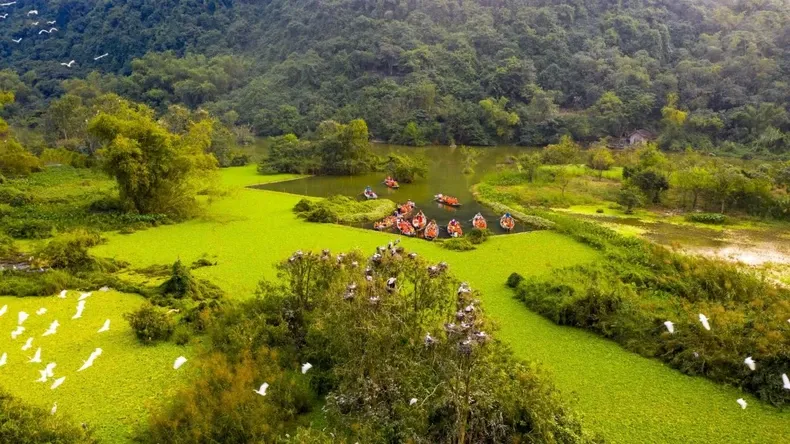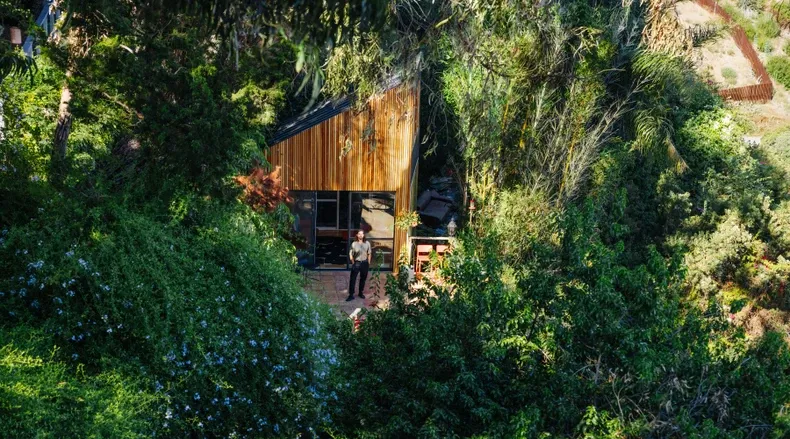In the context of climate change and the increasingly evident negative impacts of mass tourism, sustainable tourism has become a hot topic globally. In Vietnam, this trend is also gradually gaining the attention of tourists and tourism managers. The latest report from Booking.com, based on a survey of 31,000 travelers from 34 countries, including Vietnam, has revealed noteworthy signals regarding the awareness and sustainable tourism behavior of Vietnamese travelers. It also points out the challenges and opportunities for developing this type of tourism in Vietnam.
Vietnamese Tourists Increasingly Prioritize Sustainable Tourism
Research from Booking.com shows that sustainable tourism is no longer a distant concept but has become an important factor in the travel decisions of many people, especially Vietnamese tourists. Up to 96% of Vietnamese tourists surveyed affirmed that sustainable tourism plays an important role for them. This indicates a significant shift in the awareness of Vietnamese tourists, as they are increasingly aware of their responsibility towards the environment and local communities in each trip.
However, the level of priority given to sustainable tourism among Vietnamese tourists varies. A segment (26%) recognizes the importance of sustainable tourism but does not yet consider it a decisive factor when planning a trip. This may stem from various reasons such as lack of information, price, or convenience. On the other hand, a significant proportion (40%) of Vietnamese tourists express fatigue from constantly hearing about climate change, indicating that some may feel overwhelmed or not truly believe in the impact of sustainable tourism.

Despite this, positive figures still prevail when looking to the future. Up to 94% of Vietnamese tourists want to take more sustainable trips in the next 12 months. Notably, more than half of these (56%) feel guilty when choosing forms of tourism that negatively impact the environment, and 21% act because they believe sustainable tourism is the right decision. This shows that the motivation to promote sustainable tourism among Vietnamese tourists comes from both ethical factors and a sense of responsibility to the community.
Awareness and Action: Gaps and Challenges
Although awareness of sustainable tourism is increasing, the report also points out some noteworthy challenges. A paradox exists when up to 80% of Vietnamese tourists want their destinations to be improved after they leave, but at the same time, 46% feel their personal efforts are futile when tourist destinations have not truly implemented sustainable measures. The lack of synchronization between the desires of tourists and the reality at destinations is creating a significant barrier to the development of sustainable tourism.
Besides, a segment of Vietnamese tourists has not yet fully realized the impact of personal actions on the environment and society. The proportion of tourists who believe that environmental damage is irreversible (33%) and that individual tourism does not make a difference (33%) is still quite high. Even 25% of tourists do not believe climate change is as serious as warned. This shows that communication and education about sustainable tourism need to be further promoted to raise awareness and change tourist behavior.
Potential and Opportunities for Sustainable Tourism Development in Vietnam
Despite many challenges, Vietnam still has many potentials and opportunities to develop sustainable tourism. The report shows that 75% of Vietnamese tourists are willing to choose more sustainable tourism in the future, and 43% feel guilty when choosing less sustainable forms of tourism. These are positive signs showing that the sustainable tourism market in Vietnam is expanding.
The motivation to promote sustainable tourism comes not only from environmental awareness but also from richer and more meaningful travel experiences. 62% of tourists feel they are the best version of themselves when traveling sustainably, and 67% feel inspired when witnessing sustainable activities on their trip. This shows that sustainable tourism is not just a responsibility but also brings added value to the tourist experience.

In fact, many Vietnamese tourists have been practicing sustainable tourism through specific actions. 96% have participated in local cultural experiences, 93% shopped at small, independent stores, and 93% chose environmentally friendly means of transportation such as walking, cycling, or public transport. This trend shows that Vietnamese tourists not only talk but also act to contribute to the sustainable development of tourism.
Solutions and Actions Needed to Promote Sustainable Tourism
To maximize potential and overcome challenges, the joint efforts of the entire community are needed, from tourists and tourism businesses to state management agencies.
For tourists:
- Raise awareness: Proactively seek information about sustainable tourism, the impact of tourism on the environment and community.
- Choose responsibly: Prioritize sustainable tourism products and services, choose reputable certified providers.
- Take practical actions: Save energy, minimize waste, respect local culture, support local products.
For tourism businesses:
- Develop sustainable products: Build ecotourism tours, community-based tourism, agricultural tourism, focusing on cultural and environmental preservation.
- Apply sustainable standards: Obtain sustainable tourism certifications, implement energy-saving measures, minimize waste, and support local communities.
- Communicate transparently: Provide clear information about the company’s sustainable activities, encourage tourists to participate and support.
For state management agencies:
- Develop policies: Enact policies to encourage the development of sustainable tourism, support businesses and local communities.
- Destination management: Plan for sustainable tourism development, protect natural and cultural resources, and control service quality.
- пропаганда and education: Raise awareness about sustainable tourism for the community and tourists, promote cooperation among stakeholders.
Conclusion
Sustainable tourism is not only a trend but also an urgent requirement to protect natural and cultural resources and ensure the long-term development of Vietnam’s tourism industry. With the increasing awareness of Vietnamese tourists, along with the joint efforts of businesses, communities, and the state, sustainable tourism in Vietnam promises to make strong progress in the future, contributing to building a green, responsible tourism industry that brings true value to both tourists and local communities.